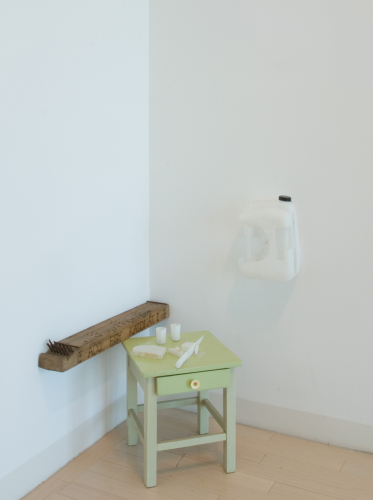LEBEL’s work was informed by political activism from the start. In addition to being active as a visual artist, he is also known as a poet, theoretician, writer and exhibition organizer—he works as an “inspired agitator” (and rebel), a committed artist. His father arrived in New York during the Second World War together with the Surrealists, and the young Lebel knew Duchamp and Breton well: they were formative influences on his outlook. In 1960 he was ostracized by the Surrealists, who objected to his rebelliousness and association with the anarchists. Lebel openly refused to be a “tamed artist,” wanting to break out of the mechanisms and institutional framework of the cultural industry. To move the work from the flat surface, from the studio right to the street: this was his motivation even as he organized the first happening in Europe (Venice, with Alain Jouffroy and Jean Tinguely, 14 July, 1960). His subsequent actions had such concepts for their background as anticolonialism, sexual freedom, or product fetishism, and were greatly reliant on his Dadaist insistence on chance, improvisation and outrageousness. With Elisabeth, an early work, Lebel probes into the social status of women, and provokes the viewer with the erotic content.
K. B.



